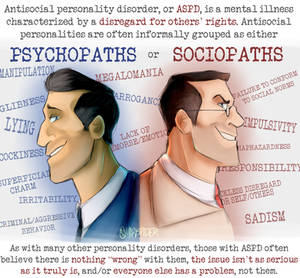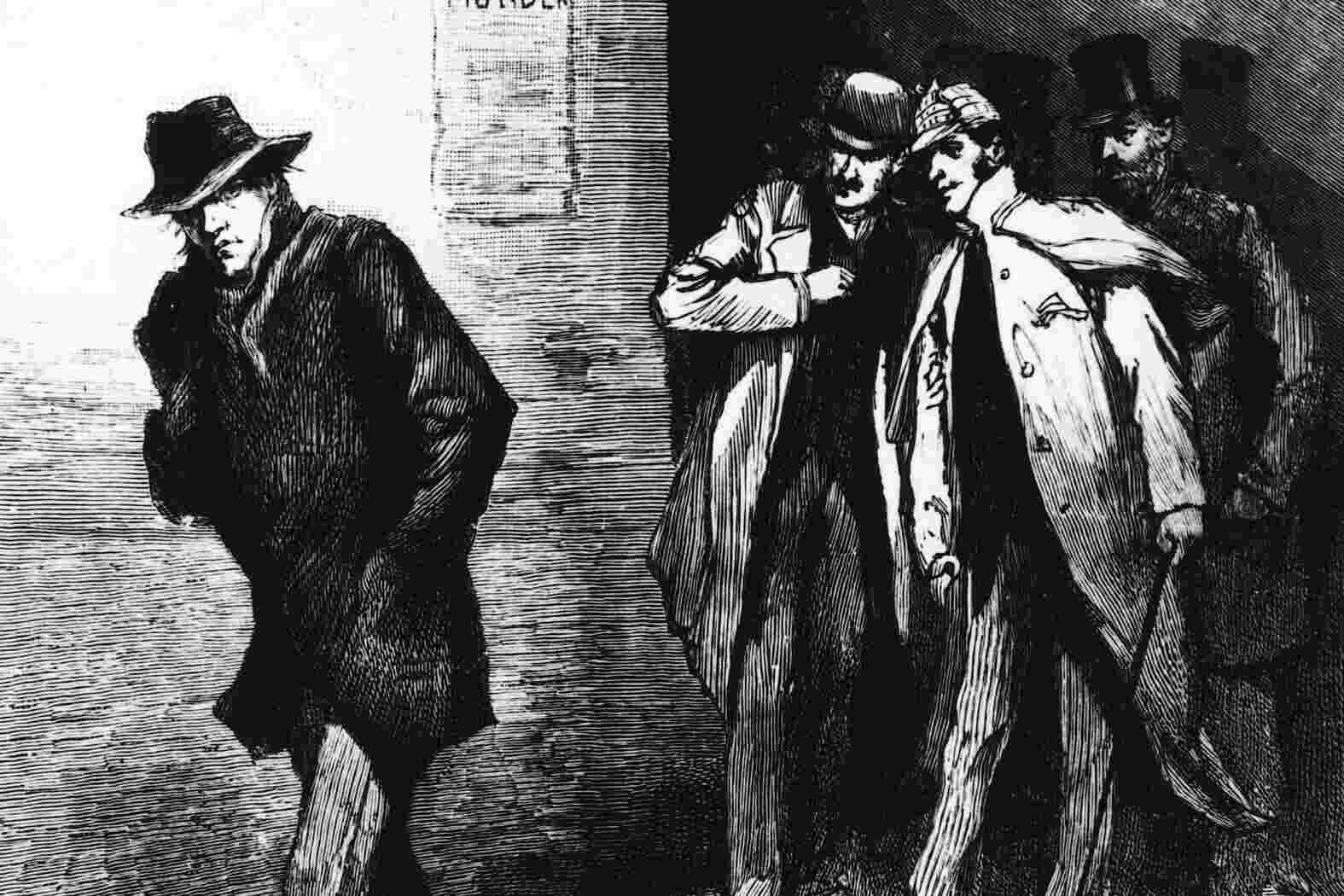6 Mentally ill killers or Psychopaths?
Look out the 6 mentally ill killers or psychopath who can be who can be ill but can dangerous as well, how could it be?

Mentally ill killers or Psychopath?
Psychopathy is a mental disorder characterized by a lack of empathy, antisocial behaviour, and an inability to form meaningful relationships. It has been linked to criminal activity and violence in some cases. Despite this, there are many misconceptions about psychopaths that have led people to believe they are all dangerous criminals.
Not all psychopaths engage in criminal behaviours or violence; rather, the condition affects individuals differently depending on their environment and upbringing. For example, those with supportive families may be able to develop healthy coping mechanisms for dealing with their emotions without resorting to crime or aggression as an outlet for frustration or anger.

Additionally, research suggests that psychopathy can actually be beneficial in specific contexts; it's been associated with increased creativity due to its ability to help people think outside the box while also providing them with emotional detachment from complex tasks like making tough decisions which could otherwise lead someone into paralysis-by-analysis mode if too emotionally involved.
Definition of Psychopath
The classic definition of psychopathy was developed by Hervey Checkley in his book The Mask of Sanity (1941). He identified 16 characteristics that defined psychopathy, including superficial charm, egocentricity and grandiosity, dishonesty or fraudulence and an inability to form meaningful relationships with others. These criteria were later modified into what we now refer to as the “Psychopathic Personality Inventory" (PPI), which assesses individuals on eight primary dimensions: impulsivity/irresponsibility; selfishness/callousness; remorselessness/lack of guilt; carefree non-planfulness; lack of long-term goals; incapacity for love; promiscuous sexual behaviour, and parasitic lifestyle.

Who is a psychopath?
People with psychopathy tend to be manipulative and deceptive to get what they want from people around them, regardless of the consequences that might result from their actions. They also tend to be impulsive, seeking immediate gratification without considering potential long-term implications; this can lead them into dangerous situations where they risk harm and those around them.
The cause of psychopathy is not fully understood, but environmental factors play an essential role in its development; individuals who grow up exposed to violence or abuse may become more likely than average individuals to develop psychopathic traits later in life. However, there are some biological components associated with psychopathy, too; research suggests that abnormalities within specific brain regions could contribute towards the development of this condition. Despite these findings, much remains unknown about how exactly someone develops into a psychopath.
Traits of Psychopath
• Acting in a way that is against societal standards
• Incapacity to differentiate between good and wrong, neglecting
• violating the rights of others
• Trouble expressing regret or empathy, propensity to lie often
• manipulating and harming others
• Overall disregard for duty and safety
• Frequent outbursts of fury and arrogance
Cause of psychopath
Psychopaths have long captivated people, and violent “psychopathic" figures frequently appear in literature, media, and real life. Violence is far from a distinguishing characteristic of psychopathic individuals, despite the possibility that such individuals may be more violent. A profound absence of empathy is what defines psychopathy instead.
Some researchers said that the cause of psychopaths might be childhood trauma, ASPD (Antisocial personality disorder), and attention deficit hyperactivity disorder (ADHD).

Psychopath vs Sociopath
Psychopaths and sociopaths are terms used to describe people with antisocial personality disorder, but there is a distinct difference between the two. A psychopath is someone who lacks any empathy or conscience and often displays violent behaviour. They can be manipulative and charming, but they will always act in their own self-interest without regard for others. On the other hand, a sociopath has some empathy or conscience; however, it may be impaired due to environmental factors such as abuse or neglect during childhood development. While they may still display criminal behaviour, it tends to be less extreme than a psychopath's actions because they have more control over their impulses.
The primary distinction between psychopathy and sociopathy lies in how these traits manifest themselves on an individual level—psychopaths tend to exhibit more severe symptoms than those seen among individuals diagnosed with antisocial personality disorder (ASPD). Psychopathic tendencies include a lack of remorse for one's actions and callousness towards victims. In contrast, individuals suffering from ASPD typically experience guilt when confronted about their wrongdoings which allows them greater control over their behaviours compared to those suffering from psychopathy, whose impulsive nature makes them prone towards violence even if not necessarily intended by the individual himself/herself.

While both conditions involve similar characteristics such as disregard for social norms and impulsivity, there are significant differences that separate psychopathy from its counterpart – namely, lack of remorse associated with psychopathic tendencies versus guilt experienced by those affected by ASPD which gives them more extraordinary ability at controlling potentially harmful behaviours thus making a diagnosis based on these criteria essential in determining appropriate interventions needed depending on each person's condition.
Some historically cruel psychopaths
- Jack the Ripper
- Jaffrey Dahmer
- Ted Bundy
- Raman Raghav
- Chandrakant Jha
- Mohinder Singh Pandher
Jack The Ripper
Jack the Ripper is one of the most notorious serial killers in history, and his identity remains a mystery. He was active in London's Whitechapel district in 1888, but despite numerous theories and investigations, no suspect has ever been identified or convicted for his crimes. This lack of closure has left many people scared about Jack the Ripper.
The fear surrounding Jack The Ripper is understandable; he killed at least five women with extreme violence over a short period before suddenly disappearing without any explanation for why he stopped killing. Even though it happened more than 130 years ago, these events still haunt us because they remain unsolved and could happen again elsewhere at any time if we don't learn from them now.

We can only hope that by studying what happened back then, we will be able to prevent similar tragedies from occurring again in our lifetime; however, until someone identifies who Jack The Ripper really was, there will always be an element of fear surrounding him due to his unknown motives and actions which have never been fully understood nor explained away satisfactorily.
Jaffrey Dahmer
Jeffrey Dahmer was one of the most notorious serial killers in American history. His horrific acts of murder and cannibalism shocked the world when they were revealed in 1991. The thought of someone like him still brings fear to many people today, even though he died more than 20 years ago.
Dahmer's victims were primarily young men who he lured into his home with promises of money or alcohol before killing them and dismembering their bodies for consumption or disposal. He also kept some body parts as trophies, adding to his notoriety as a cold-blooded murderer with no remorse for his actions

Despite being dead for over two decades, Dahmer's legacy continues to haunt many people today due to the sheer horror that surrounded him during his lifetime and beyond it; from gruesome details about what happened inside his apartment building walls all those years ago right down to how much darker our collective understanding is now on just how depraved humans can be if left unchecked by society at large – Jeffrey Dahmer will always remain a figurehead symbolizing true evilness within mankind's darkest depths. For this reason alone, it is understandable why so many are scared by the mere mention of Jaffrey Dahmer's name!
Ted Bunny
Ted Bunny is one of the most notorious and infamous psychopaths in recent history. Psychology and criminal justice experts have widely discussed, debated, and dissected his story. Ted Bunny was a serial killer who murdered five people between 1993-1995 while living in California. He was eventually apprehended after an extensive manhunt that lasted for several months before he could be brought to justice.
His gruesome crimes have made him one of the most recognizable figures within the field of psychopathy studies today. Many researchers believe that his behaviour can provide valuable insight into how a person's mental health can deteriorate over time, leading them to commit heinous acts such as murder or other forms of violence against others without remorse or guilt feelings being present afterwards. This makes Ted Bunny a critical figure in understanding psychopathy better, as well as developing strategies for prevention and treatment options for those suffering from this condition

In addition, many psychologists argue that certain personality traits may predispose someone towards becoming a psychopathic individual like Ted Bunny; these include lack of empathy, impulsiveness, grandiosity, disregard for rules/laws/social conventions etc., all factors which were clearly evident during his trial proceedings. Thus, studying individuals such as Teddy allows us not only to gain further understanding about what leads someone down this dark path but also provides potential clues on how we might be able to intervene earlier on so they never reach this point at all – something which should give us hopes moving forward with regards tackling cases involving violent offenders with psychological disorders effectively going forwards.
Raman Raghav
Ramna Ragahv is a notorious serial killer who terrorized the city of Mumbai in India for over two decades. He was known for his ruthless and violent behaviour and ability to evade law enforcement. His victims were primarily women and children, but he occasionally targeted men. Ramna Ragahv's spree began in the late 1980s when he started killing people randomly with knives or other sharp objects. As time passed, he became even more brazen with his attacks and would often break into homes to commit murders while their occupants were sleeping or away at work.
The police had difficulty apprehending Ramna due to his cunning nature; it took them over 20 years before they finally managed to capture him in 2012 after an extensive manhunt that included multiple raids throughout Mumbai's slums where many believed him to be hiding out from authorities since 1995. Despite being apprehended by law enforcement officials, there are still some unanswered questions about this psychopathic killer, such as why he chose certain victims? What motivated him during these killings? And what made him so difficult for the police force to catch despite all their efforts?

These questions remain largely unanswered due primarily because of the lack of evidence against Ramna, which has left investigators stumped ever since they caught up with this madman back in 2012; however, one thing is clear – no matter how much we try not to comprehend why someone like Ramana could exist among us – we must never forget that evil can take any form imaginable regardless if its human or otherwise – making it our duty always stay vigilant against such potential threats within our society!
Chandrakant Jha
Psychopath Chandrakant Jha is a notorious serial killer who terrorized the city of Mumbai in the late 1980s and early 1990s. He was responsible for at least seven murders, including three police officers, two women and two children. His victims were usually selected randomly from poor neighbourhoods or slums where he lived temporarily while evading capture by authorities.
Chandrakant Jha's modus operandi involved preying on vulnerable people, often those with mental disabilities or physical handicaps, which made them easy targets for his violent outbursts of rage. He would lure his victims to secluded areas before attacking them with knives or other weapons he had acquired from local shops. After killing his victim, he would mutilate their bodies as an act of revenge against society, which he felt had wronged him in some way throughout his life, leading to these gruesome acts of violence.

The psychological profile developed by experts during Chandrakant Jha's trial revealed that this psychopathic murderer suffered from severe personality disorders such as Borderline Personality Disorder (BPD) and Narcissistic Personality Disorder (NPD). These conditions likely contributed to extreme aggression towards others due to feelings of insecurity stemming from childhood trauma caused by abuse within family relationships and neglectful parenting styles adopted by both parents throughout their lives together. Ultimately it can be said that without proper treatment, these psychiatric issues could have led Chandrakant down a path filled with more death and destruction if not caught in time.
Mohinder Singh Pandher
Mohinder Singh Pandher, known as the “Kanpur Serial Killer", is one of India's most notorious psychopaths. He was convicted in 2009 for his involvement in a series of gruesome murders that occurred between 2005 and 2006. The victims were all young women who he would abduct from their homes or on the street before raping them and then murdering them by strangulation or slitting their throats.
Psychopaths are people with antisocial personality disorder, which often results in a lack of empathy towards other humans and no sense of guilt when they do something wrong. In Mohinder Singh Pandher's case, it became clear that he had this condition after police found evidence linking him to several unsolved murder cases over many years before those committed between 2005-2006, which resulted in his conviction for rape, abduction, murder and criminal conspiracy amongst other charges.

The Kanpur Serial killer case was one of India's most high-profile investigations at the time due to its brutality but also because it highlighted how dangerous psychopathic behaviour can be if left unchecked by authorities such as law enforcement agencies who failed to act on numerous reports made against Mohinder Singh Pandher before these incidents occurring. It serves as an important reminder about why it is so crucial for society to take mental health issues seriously rather than ignoring them until tragedy strikes, like what happened here with this serial killer whose actions could have been prevented if proper measures had been taken earlier on instead of being ignored until too late.
Conclusion
In summary, while much is unknown about the causes and effects of psychopathy on people's lives today, including how those affected can best be treated, it seems likely that both nature (genetic makeup), as well as upbringing (environmental influences) play a role in the development of this disease in all phases of life; In addition, recent studies have suggested possible links between certain personality traits with an increased risk of developing psychopathic tendencies later in life as well.
As further research continues into this field, we will gain greater insight into why some people develop these characteristics, which could lead us closer towards more effective treatment options being available down the line too.
Do follow us on Instagram: Viralkida , Twitter: @Viralkida1, Facebook: The Volunteers Group




